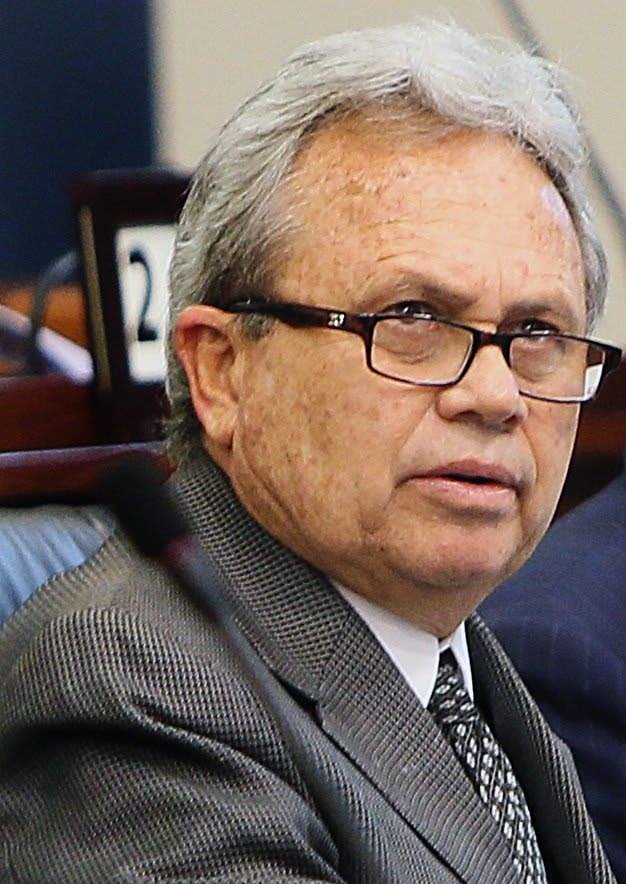Imbert talks $

IT’S been a volatile past week for economic news in TT and this week promises to be a continuation. Fresh off a fiery rebuttal of the Opposition’s motion on Friday that the Government mishandled the economy, Finance Minister Colm Imbert will on Monday deliver his mid-year review of the budget, including a supplemental appropriations bill to allocate more money to ministries.
He will also have to address a major development in the country’s energy sector – BPTT’s recent announcement that it drilled four dry wells in the Columbus Basin. The company admitted in a statement on Friday that the setback will have a material impact on its forecasted production, especially in 2020/2021. BPTT is the country’s biggest gas producer and biggest tax payer, so any lowered output projections will undoubtedly have repercussions for the country, not the least in reduced revenue for the State.
Imbert could pass this off as a problem for next year, but given that he has announced plans for the government to ramp up capital expenditure, especially on infrastructural projects – as elections draw nearer– and the government’s insistence that natural gas output will increase into 2021 to over 4 billion cubic feet per day, he may have to re-evaluate some projections downward. Not to mention the future of Atlantic. So much of the plant’s operations is dependent on Train One – including, Newsday was told, salaries. The plant has already spent millions on hiring new staff and buying equipment to upgrade the train, which is now all in jeopardy should there be no gas supply come 2020 to justify its extension.
Coming on the heels of the Petrotrin restructuring, including shuttering the Pointe-a-Pierre refinery and approximately 5,000 workers being retrenched, it will be important for the government to put the current state of the economy in context, as well as present a comprehensive plan for going forward, as Opposition MP Dr Bhoendradatt Tewarie suggested in his contribution to the motion in Parliament on Friday.
BPTT’s announcement looms over the country’s future, especially as TT is seemingly starting to emerge from economic limbo. Imbert boasted on Friday that the country had three consecutive quarters of economic growth in 2018. “By any definition, three quarters of economic growth is a turnaround,” he said. Economist Marla Dukharan disagreed, countering in a tweet that in the context of a decade of economic growth on average, it isn’t. Former energy minister Kevin Ramnarine suggested that the BPTT bust could even trigger a recession in 2020 given how dependent TT’s economy is on gas.
What will be reviewed
Imbert will also have to address the crumbling of two of his six pillars announced in the budget last October – Sandals Tobago and the Dragon gas deal with Venezuela. In January, Sandals pulled out of the deal citing, among other things, negative press. Venezuela meanwhile, is currently going through civil unrest, as US-backed self-declared interim President Juan Guaido challenges incumbent Nicolas Maduro for power. Despite assurances from National Gas Company chairman Gerry Brooks that the deal is “not in danger,” it is certainly not happening within this financial year, nor the next. Dragon gas was also factored into overall gas projections.
One thing Imbert did assure is that diesel prices will be the same, which means the government will still be burdened by the fuel subsidy, despite the country now importing fuel via Paria Fuel Trading Company. Imbert may also expand on platform promises including the possibility of the National Investment Fund 2 and bonds for the Housing Development Corporation.
He will also have to justify excess spending, although, at a recent press conference, he said the country has had three years of stabilisation policies, so now is the time for expansion. Part of that government spending will be financed through debt, so the minister will also have to explain his rationale, although he has maintained that the country’s debt to GDP ratio is within manageable levels.
All the same, the minister spent most of his presentation on Friday elaborating on the progress the economy has made under his tenure, notably referring to an International Monetary Fund statement on Thursday, where the Fund, in response to questions submitted by Newsday, said TT's economy had started showing signs of growth since the second half of 2017 and estimates the economy has returned to positive growth in 2018.
The IMF added it expected moderate positive growth over the medium term as the energy sector continues its pick up and the recovery takes hold in the non-energy sector. That said, his presentation today should focus more on the prospects and policies for the economy going forward.


Comments
"Imbert talks $"